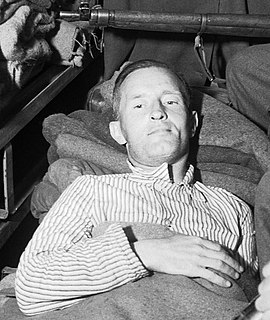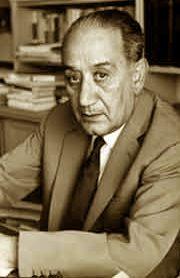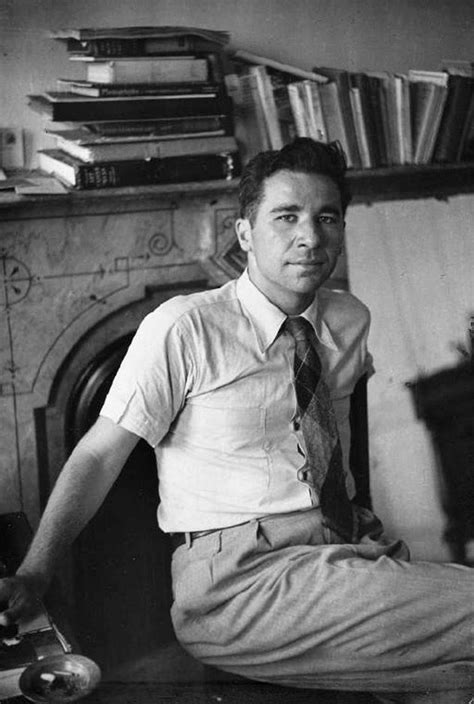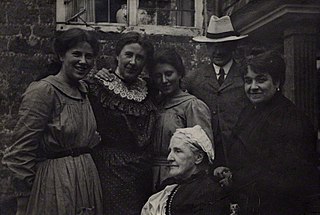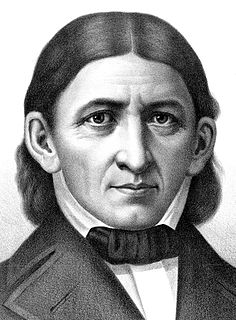A Quote by William Joyce
His life was a book of his own writing, one orderly page after another.
Related Quotes
The translator ... Peculiar outcast, ghost in the world of literature, recreating in another form something already created, creating and not creating, writing words that are his own and not his own, writing a work not original to him, composing with utmost pains and without recognition of his pains or the fact that the composition really is his own.
Each individual composes the music of his own life. If he injures another, he brings disharmony. When his sphere is disturbed, he is disturbed himself, and there is a discord in the melody of his life. If he can quicken the feeling of another to joy or to gratitude, by that much he adds to his own life; he becomes himself by that much more alive. Whether conscious of it or not, his thought is affected for the better by the joy or gratitude of another, and his power and vitality increase thereby, and the music of his life grows more in harmony.
He was beastly tired, but it was hard to stop. One more book, he had told himself, then I'll stop. One more folio, just one more. One more page, then I'll go up and rest and get a bite to eat. But there was always another page after that one, and another after that, and another book waiting underneath the pile. I'll just take a quick peek to see what this one is about, he'd think, and before he knew he would be halfway through it.
To live his life in his own way, to call his house his castle, to enjoy the fruits of his own labour, to educate his children as his conscience directs, to save for their prosperity after his death -- these are wishes deeply ingrained in civilised man. Their realization is almost as necessary to our virtues as to our happiness. From their total frustration disastrous results both moral and psychological might follow.
While people argue with one another about the specifics of Freud's work and blame him for the prejudices of his time, they overlook the fundamental truth of his writing, his grand humility: that we frequently do not know our own motivations in life and are prisoners to what we cannot understand. We can recognize only a small fragment of our own, and an even smaller fragment of anyone else's, impetus.
A priest is a man vowed, trained, and consecrated, a man belonging to a special corps, and necessarily with an intense esprit de corps. He has given up his life to his temple and his god. This is a very excellent thing for the internal vigour of his own priesthood, his own temple. He lives and dies for the honour of his particular god. But in the next town or village is another temple with another god. It is his constant preoccupation to keep his people from that god. Religious cults and priesthoods are sectarian by nature; they will convert, they will overcome, but they will never coalesce.
Buonaparte is certainly writing, or rather dictating, his memoirs. He walks backwards and forwards with his hands behind him, and dictates so fast that two or three of his suite are obliged to be in attendance, that the one may take down one-half of a sentence, and another the rest; they then literally compare notes, and put the disjointed legs and wings and heads of periods together. This is writing a book as he fought a battle.
There's a fantastic, thousand-page book by David Thomson about [David O. Selznick]. Again, it's not the best argument or the best advertisement for his story, because most people aren't going to read a thousand-page book. But I feel like the rise and fall and the work [Mayer] produced - not just the movies, but the memos, the volume of writing - he's just so passionate, and that's really exciting.
Let's find and remedy all our weaknesses before our enemies get a chance to say a word. That is what Charles Darwin did. ...When Darwin completed the manuscript of his immortal book "The Origin Of Species" he realized that the publication of his revolutionary concept of creation would rock the intellectual and religious worlds. So he became his own critic and spent another 15 years checking his data, challenging his reasoning, and criticizing his conclusions.
The mind grows by self revelation. In play the child ascertains what he can do, discovers his possibilities of will and thought by exerting his power spontaneously. In work he follows a task prescribed for him by another, and doesn't reveal his own proclivities and inclinations; but another's. In play he reveals his own original power.
